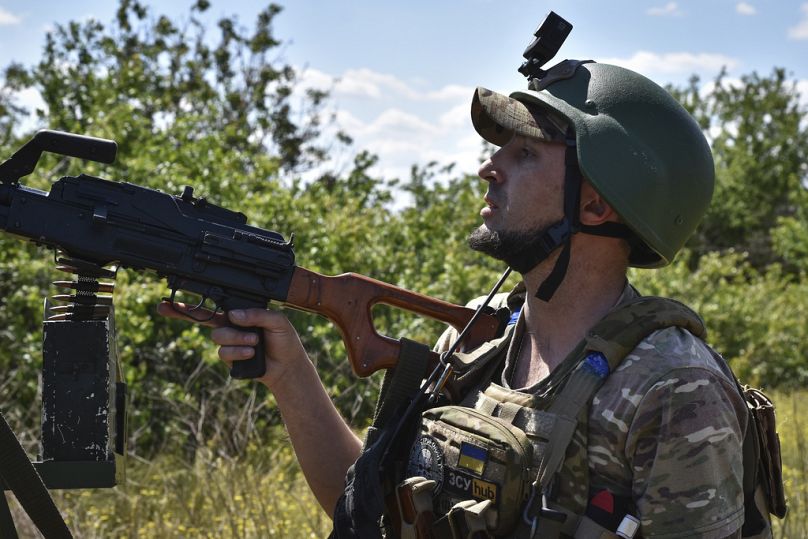Moscow says it will keep pushing its offensive in Ukraine, though NATO doubts Russia has the resources to make a significant breakthrough.
Putin has denied plans to capture Kharkiv as fighting continues in the region, forcing thousands to flee.
 ADVERTISEMENT
ADVERTISEMENT
 ADVERTISEMENT
ADVERTISEMENT
Speaking to reporters on Friday during his state visit to China, the Russian president said Moscow had launched attacks in the Kharkiv region in response to Ukrainian shelling in Russia's Belgorod region.
"I have said publicly that if it continues we will be forced to create a security zone, a sanitary zone," he said, "As for Kharkiv, there are no such plans (to capture the city)".
Also on Friday, NATO’s top military officer has said Russia’s armed forces are incapable of any major advance.
“The Russians don’t have the numbers necessary to do a strategic breakthrough,” NATO’s Supreme Allied Commander Europe Christopher Cavoli told reporters on Thursday.
“More to the point, they don’t have the skill and the capability to do it; to operate at the scale necessary to exploit any breakthrough to strategic advantage,” the general said.
His comments come as Ukrainian forces engage in fierce battles with Russia's troops for control of Vovchansk, a key town in Ukraine's northeastern Kharkiv region.
Kyiv claimed on Thursday it had checked Russia's advance, but a senior Moscow official said the Russian army had enough resources to keep going.
Euronews could not independently verify either claim.
Vovchansk, located just 5 kilometres from the Russian border, has been a hotspot in the fighting in recent days.
Asked if Russia was about to launch its anticipated summer offensive early, top US and NATO commander, Cavoli said: “We can never be sure.”
However, he added: “What we don’t see is large numbers of reserves being generated some place” needed for such an offensive.
Russia began an operation in the Kharkiv region last week, marking its most significant border incursion since the full-scale invasion began in 2022.
The move has piled pressure on Ukraine’s outnumbered and outgunned forces which are waiting for deliveries of crucial military supplies from the West.
Delays in Western assistance have "likely helped" Russia's offensive by forcing Ukrainian forces to conserve material and limiting their ability to defend themselves, according to the US-based Insitute for the Study of War.
Ukrainian President Volodymyr Zelenskyy met top military commanders in Kharkiv on Thursday, saying the region “is generally under control.”
But he acknowledged on social media that the situation was “extremely difficult”.
Former Russian defence minister - now the head of the National Security Council - Sergei Shoigu insisted Russian troops are pushing the offensive in many directions and that “it’s going quite well.”
“I hope we will keep advancing. We have certain reserves for the purpose, in personnel, equipment and munitions,” he said in televised remarks.
The Institute for the Study of War calculated that Moscow's army had advanced no more than 8 kilometres from the shared border in Kharkiv.
It says Moscow’s main aim in the region is to create a “buffer zone” that will prevent Ukrainian cross-border strikes on Russia’s neighbouring Belgorod region.











